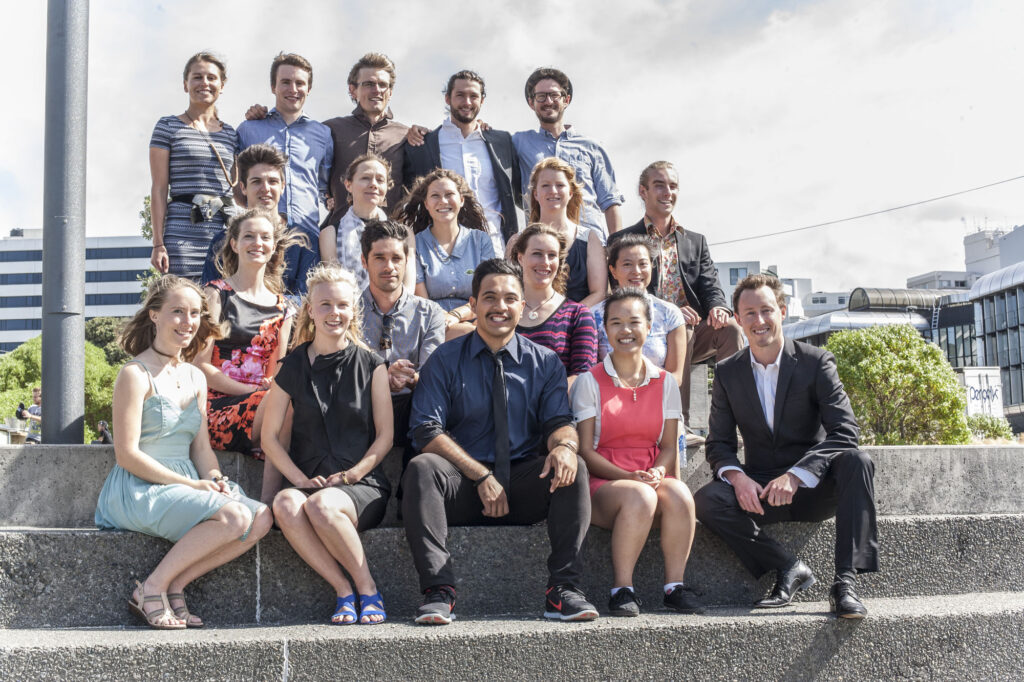Starting a small business in New Zealand presents unique opportunities and challenges. With a diverse economic landscape, key industries like agriculture, tourism, and technology drive development. Also, the government policies for small businesses and startups are supportive, making it an attractive place for entrepreneurs.
When considering small business ideas, evaluating market trends, demands, and the nearby context is essential. Considering the nation’s market needs and development potential, here are several small business ideas across different sectors that could be viable in New Zealand.
1. Sustainable Tourism
- Viability: Tourism altogether contributes to New Zealand‘s economy, adding NZ$40.9 billion to the absolute economy. The country’s reputation for pristine normal landscapes and adventure tourism makes sustainable tourism ventures a solid match, especially with the developing trend of eco-cognizant travel. New Zealand’s remaining as a clean and green destination makes sustainable tourism especially viable.
- Considerations: Businesses should be sustainable and partner with conservation gatherings to support credibility with discerning vacationers. Offer unique experiences like guided hikes in public stops, social visits, and wildlife conservation.
2. Agritech Solutions
- Viability: Agriculture contributes 5% to New Zealand’s Gross domestic product. The government’s Agritech Industry Change Plan upholds development in the sector. Worldwide agritech market development creates an environment for innovative solutions. Farmers are open to embracing technology that can reduce costs, improve yields, or minimize environmental effects.
- Considerations: It is essential to comprehend the unique requirements and obstacles faced by New Zealand’s agriculture industry. Any solutions proposed should be functional, affordable, and easy to implement into cultivating practices. The dairy business, pest control, and soil health improvement in New Zealand require a customized approach that considers specific horticultural circumstances and obstacles.
3. Digital Marketing Services
- Viability: As more businesses in New Zealand move towards online platforms, the demand for skilled digital marketing services is rising. The digital audience is tremendous, with an incredible 4.99 million internet users in the country, which makes up approximately 95.9% of the populace. The New Zealand digital advertising market has developed, with online promotion spending exceeding NZ$1.32 billion. Small and medium-sized enterprises (SMEs) could face challenges dealing with their digital presence effectively due to an absence of in-house expertise.
- Considerations: A successful digital marketing agency in New Zealand should offer a complete range of services. This involves understanding nearby consumer behavior and utilizing neighborhood platforms and influencers. The agency ought to likewise specialize in niche markets like tourism, craftsman items, or export businesses and provide custom strategies that leverage the country’s unique image and reputation.
4. Speciality Food Production
- Viability: There is a rising demand for premium, sustainable, and health-cognizant food items in New Zealand and worldwide. The natural food market in New Zealand is developing steadily, with consumers spending over NZ$600 million yearly on natural produce. The worldwide natural food market is likewise expanding, demonstrating potential for export and neighborhood niche markets. High quality and specialty foods can take advantage of this trend.
- Considerations: Food safety regulations and certification compliance are vital for market access. Center around unique New Zealand items, like native ingredients or conventional Māori foods. Understand circulation channels and marketing strategies to reach target consumers.
5. Renewable Energy Solutions
- Viability: New Zealand holds back nothing electricity by 2030. In 2020, 82% of electricity came from hydro, wind, and geothermal sources. Businesses in renewable energy solutions and consulting have learning experiences. The country’s commitment to carbon neutrality brings government and public help for renewable energy. Sunlight based, wind, and hydropower offer prospects for development.
- Considerations: Businesses in New Zealand should manage regulations, subsidies, and technology. It is essential to Collaborate with communities. Offer solutions for the geography and climate, for example, sun based for country areas, wind turbines for wind patterns, or miniature hydro power for small communities.
6. Tech Startups
- Viability: New Zealand startups in the tech sector are developing quickly, zeroing in on software, simulated intelligence, and tech hardware. The government provides awards and Research and development incentives to help advancement, encouraging a startup environment. The technology sector is the third-largest exporting sector in New Zealand, contributing NZ$8 billion to the economy and proceeding to develop. Callaghan Advancement Awards and other initiatives unequivocally support tech development and startup development.
- Considerations: To succeed in tech, keep up with technology and worldwide trends, network with investors, and spotlight on taking care of New Zealand problems or leveraging strengths in areas like agriculture, health, or education that can scale universally.
7. Health and Wellness Services
- Viability: The worldwide wellness industry, which includes health, fitness, sustenance, and wellness tourism, is expanding. In New Zealand, people are increasingly health-cognizant, and spending on exercise center memberships and wellness services is rising every year. This sector includes actual fitness facilities, mental health, and all encompassing wellness retreats.
- Considerations: Certification and capabilities are necessary for credibility in the wellness business. Integrating New Zealand’s normal beauty and social heritage into services can be a unique selling point.
8. E-commerce Platform
- Viability: Online shopping is on the rise in New Zealand, creating opportunities for niche e-commerce platforms. Online retail sales reached NZ$5.8 billion out of 2020, a 25% increase from the previous year. Niche e-commerce platforms can zero in on categories like New Zealand-made items, sustainable merchandise, or high quality crafts.
- Considerations: To succeed in e-commerce, understand coordinated factors, digital marketing, and customer service. Offer unique, user-friendly shopping. Leverage New Zealand’s image with nearby or eco-friendly items. Target worldwide consumers interested in New Zealand’s items and culture.
9. Educational Services
- Viability: Education is a main five export sector in New Zealand, contributing NZ$5.1 billion every year. There’s a developing demand for online learning and upskilling courses, reflecting worldwide trends. The demand for education and expertise development traverses all ages and arrangements.
- Considerations: Understand New Zealand’s education needs and holes. Construct entrust with qualified teachers and proven learning outcomes. Leverage unique assets like indigenous studies, environmental conservation, or adventure tourism preparing to draw in nearby and international students.
10. Creative Arts and Crafts
- Viability: The creative sector in New Zealand contributes NZ$17.5 billion to the Gross domestic product and employs over 130,000 people. There is a demand for unique, privately made items both domestically and internationally. Vacationers and local people searching for genuine items drive the market for such items, advancing social identity and creativity.
- Considerations: To succeed in selling items, fabricate a brand story and connect with customers through the uniqueness and authenticity of the items. Use online platforms and nearby markets for perceivability and sales. Center around items that showcase New Zealand’s social heritage, regular materials, or unique design esthetics. Partner with Maori and Pacific Islander communities to create and sell authentic and socially respectful items for a unique market niche.
11. Environmental Consulting
- Viability: New Zealand’s Zero Carbon Act means to achieve net-zero fossil fuel byproducts by 2050. This has created a demand for environmental consulting services to help businesses follow regulations and supportability objectives. These services can range from waste management consulting to climate change variation strategies.
- Considerations: Success in environmental maintainability requires expertise parents in law and manageability practices, a reliable reputation, and the capacity to navigate complex regulations. Specializing in New Zealand’s challenges and objectives and consolidating conventional ecological knowledge from indigenous communities can offer unique and valuable services.
12. Property Management Services
- Viability: Tourism in New Zealand is rebounding, and the notoriety of transient rental platforms like Airbnb, alongside a solid real estate market, is creating demand for property management services. With over 3.8 million sightseers visiting New Zealand in the year ending January 2020, there is a huge market for transient rental management. Professional property management services can range from overseeing occasion homes and Airbnb rentals to overseeing residential and commercial properties for absentee owners.
- Considerations: Effective property management requires solid hierarchical abilities, customer service, and a decent understanding of regulations and the real estate market. Leveraging technology can enhance management and marketing efficiency. Offering bespoke packages for eco-friendly practices or specialized services for vacationer areas can give a business an edge. Value-added services like guest concierge and manageability assessments can draw in niche markets.
When it comes to small business ideas in New Zealand, obviously opportunities proliferate across different sectors. New Zealand offers a supportive environment for entrepreneurs, from tech development and environmental manageability to the evolving education and real estate market needs.
However, having a smart thought isn’t enough for success. It requires a deep understanding of the neighborhood market, a commitment to quality and supportability, and the capacity to adjust to changing consumer preferences and worldwide trends. In the event that you intend to start or expand a small business in New Zealand, utilizing the country’s unique strengths and find innovative, tailored solutions to its challenges is significant.
Relevant Topics Search:





